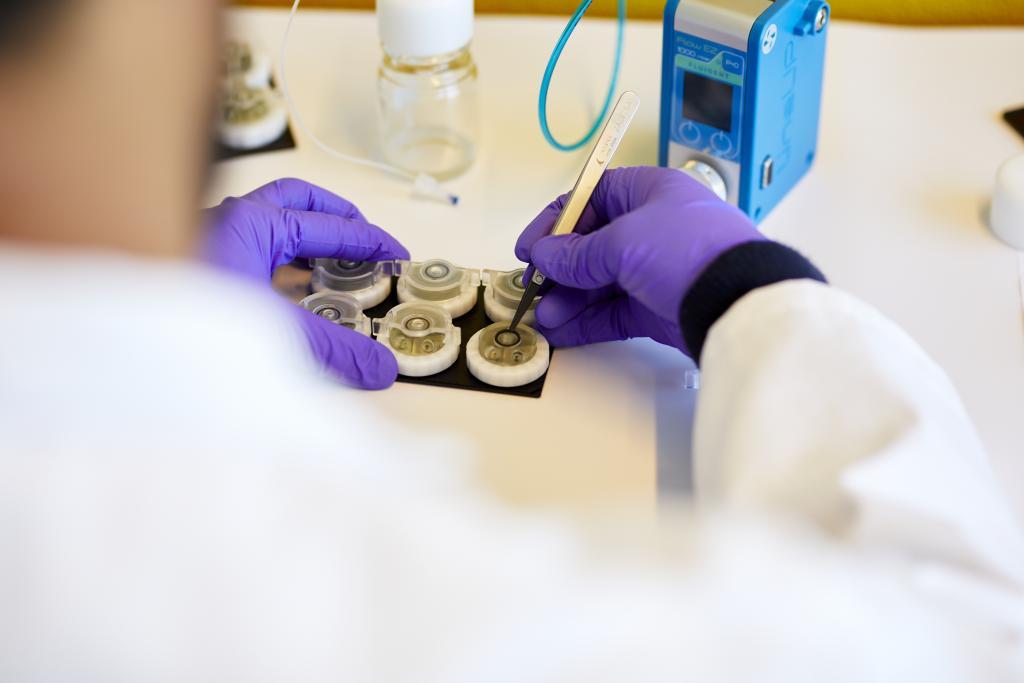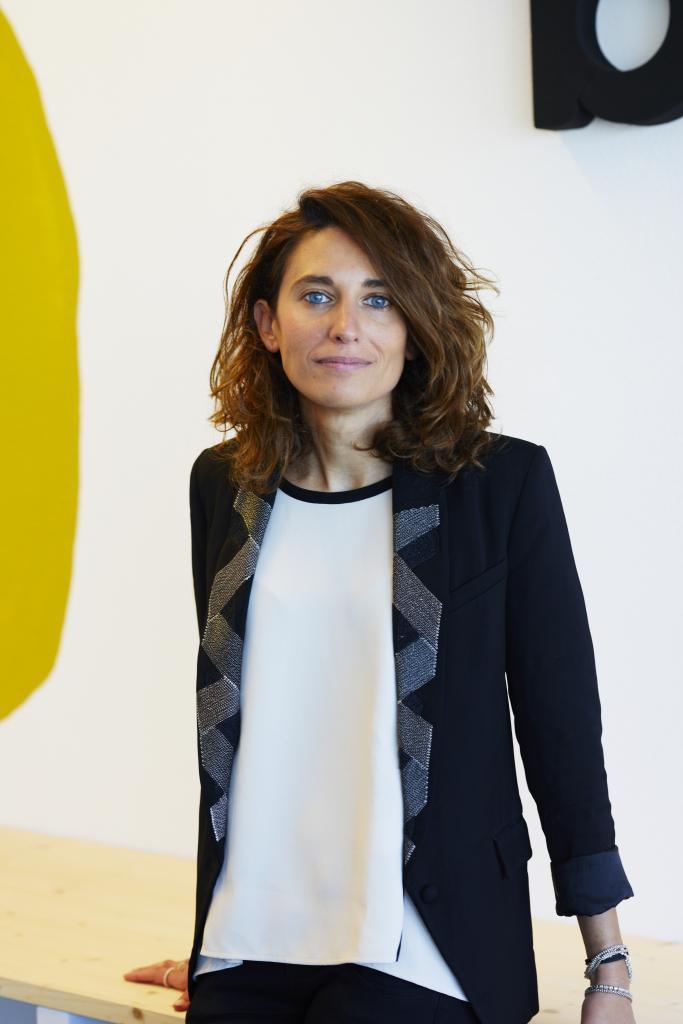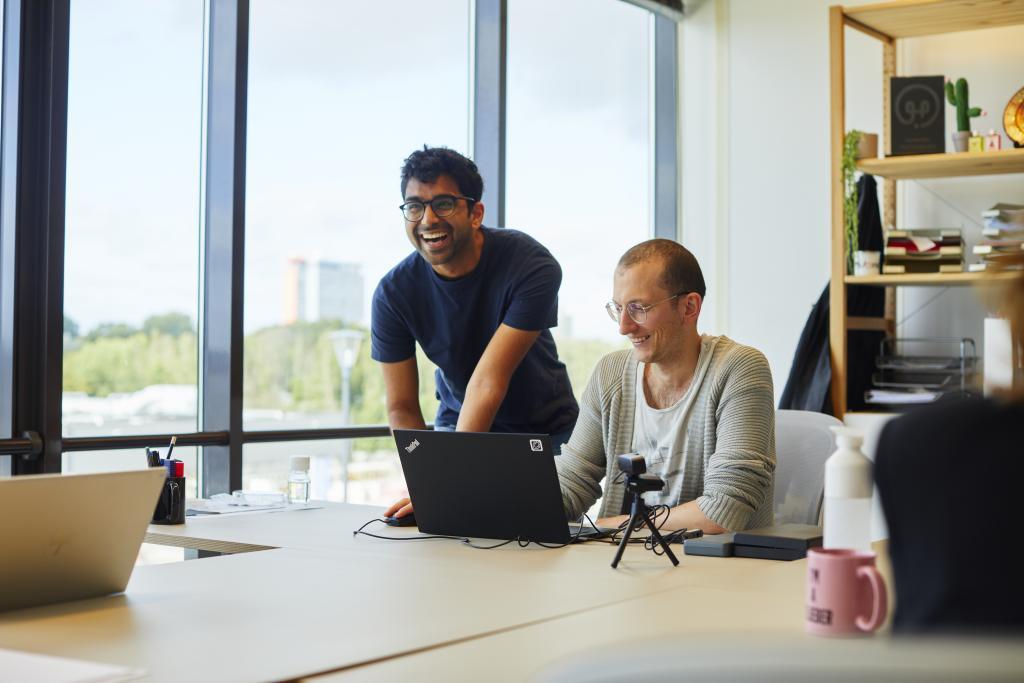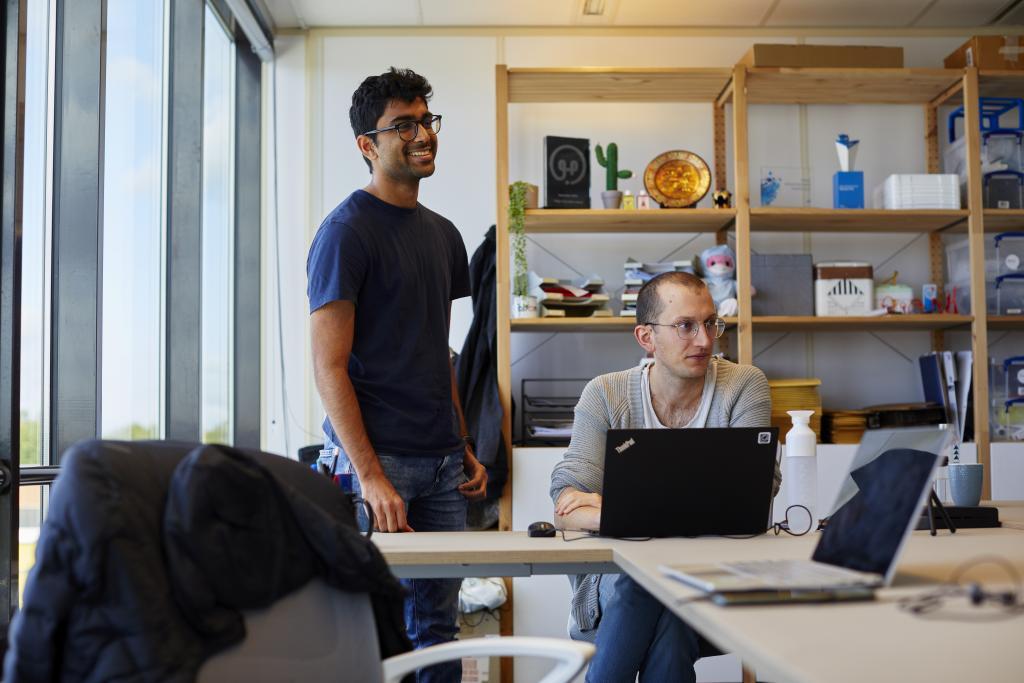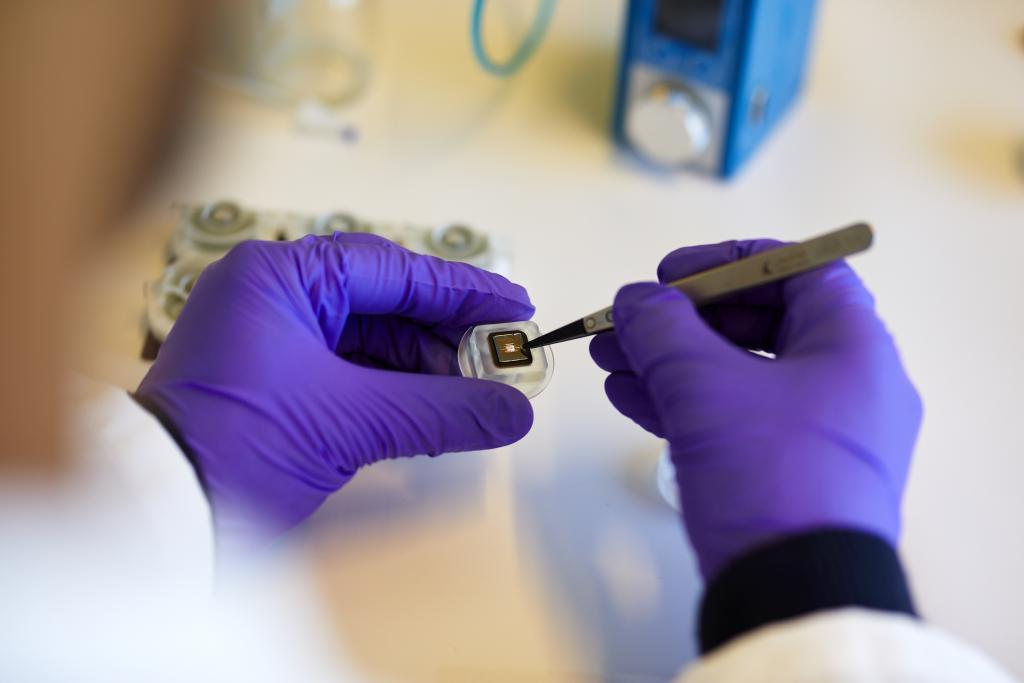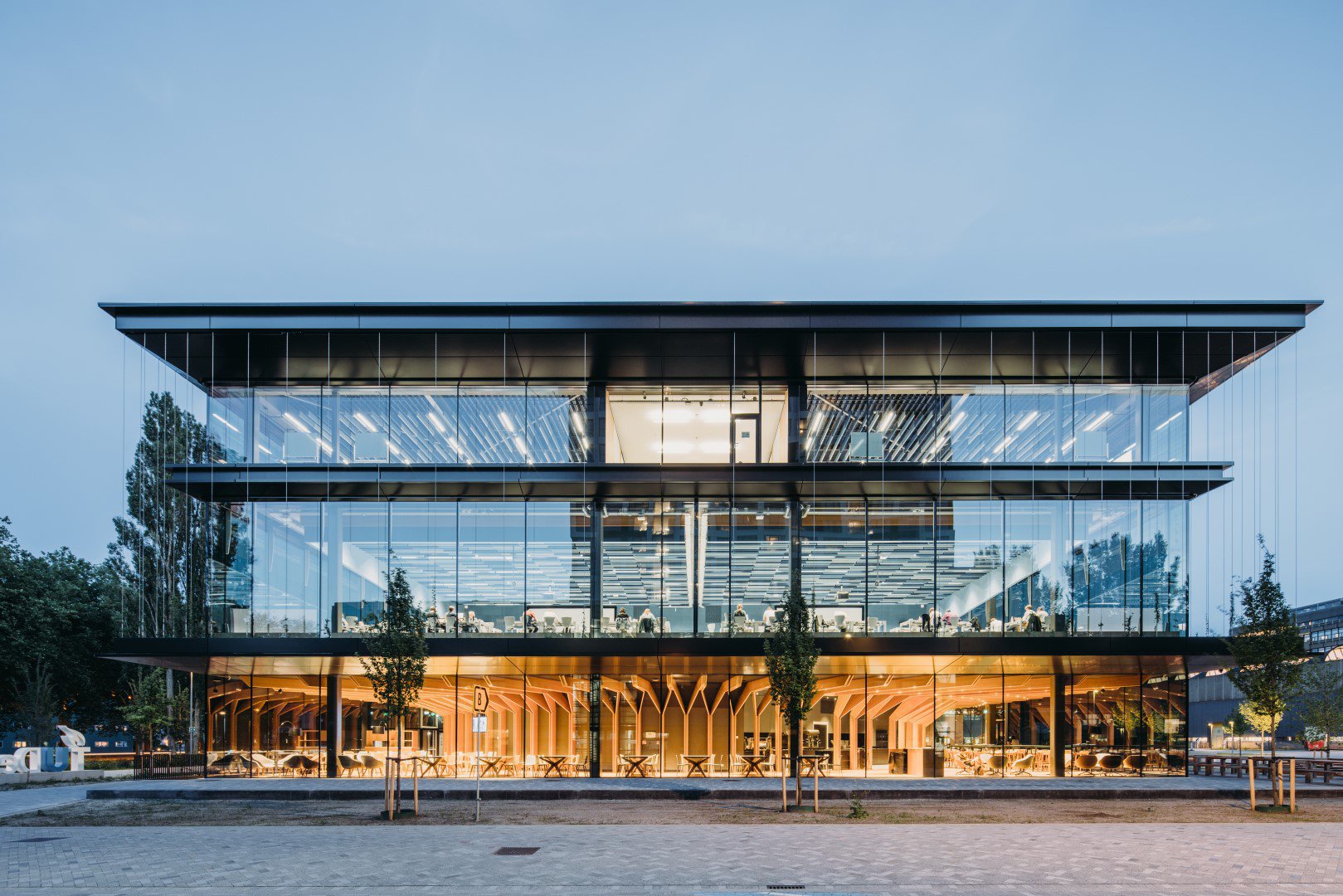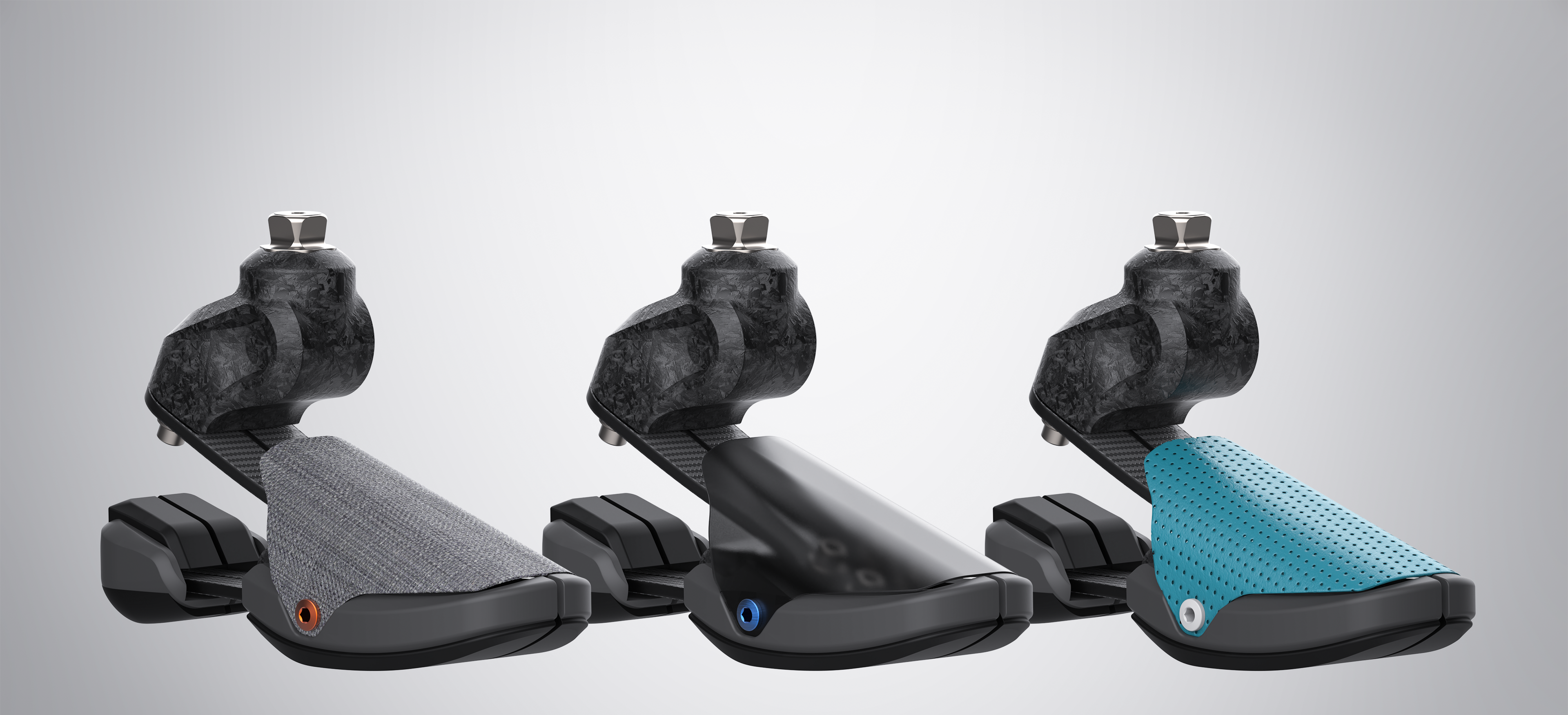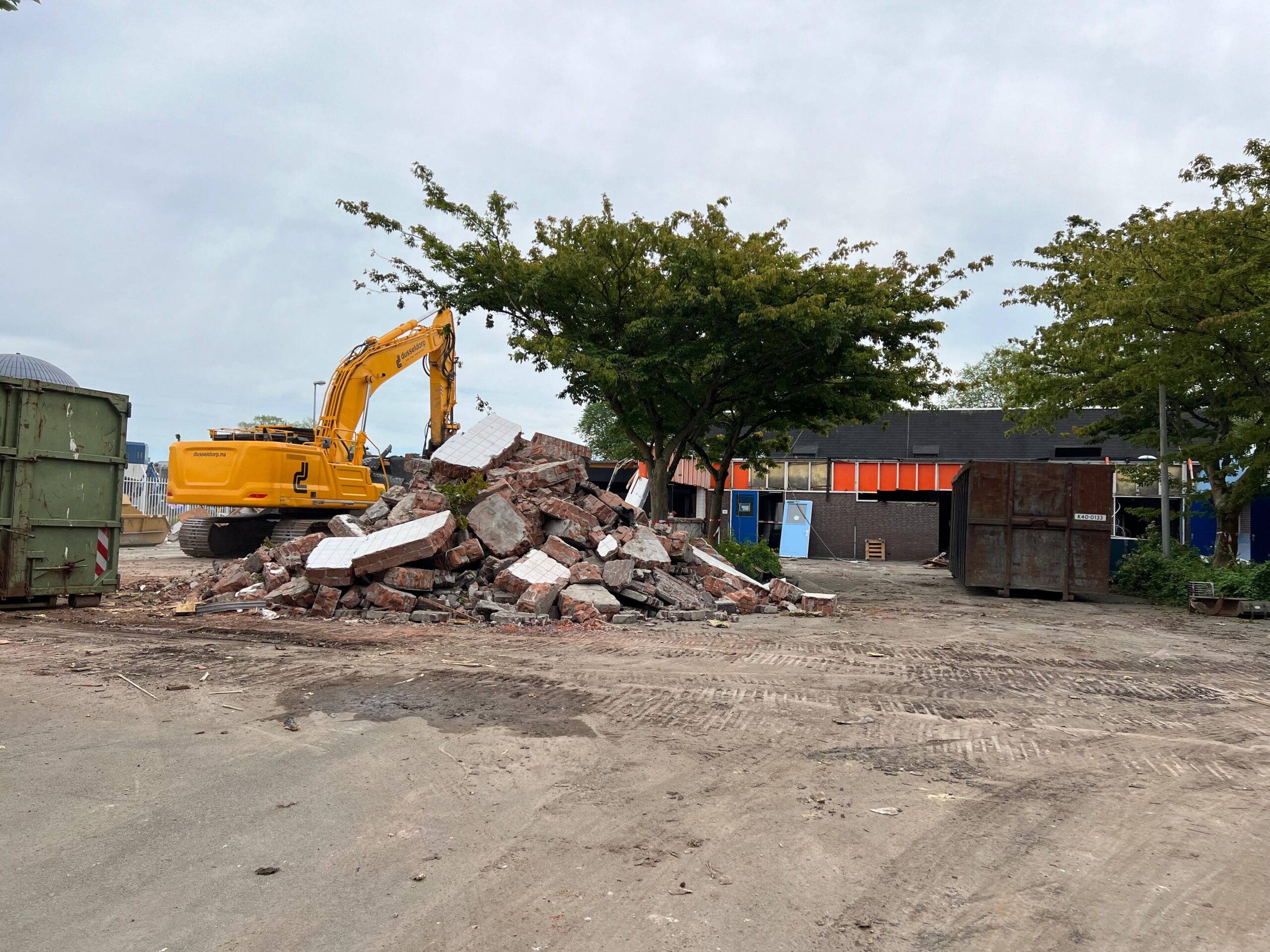Ambition and optimism go hand in hand when looking at Bi/ond’s plans to revolutionise medicine testing. The young Delft start-up, founded in 2017 sits squarely at the intersection of advanced engineering and biology. CEO Cinzia Silvestri talks about the entrepreneurial trials and tribulations of Bi/ond. ‘We simply wanted to create the best hardware for biologists. To get there, you have to grow, change and stick to your core beliefs.’
A so-called organ-on-a-chip (OOC) allows cell cultures placed on a chip to mimic the functionality of human organs, simulating a beating heart, a lung pumping air or a flowing blood vessel. Bi/ond’s customisable OOCs are meant to get much more accurate insights in diseases and the effectiveness of medicine than traditional animal testing or cultures in petri dishes offer. The technology has taken off in the Netherlands in new and exciting ways, Silvestri explains. ‘It helps that there is a lot of interest from the government. It has led to many start-ups in the region – and even some SMEs.’
The best mistakes
Bi/ond’s breakthrough was partially the result of a mistake in the clean lab. Silvestri recalls this ‘happy accident.’ ‘Nikolas Gaio and William F.G Solano (Bi/ond’s two other founders) were developing a new recipe for a (silicon) chip in the clean room. They tried to make something new, but it didn’t work out. When they inspected their mistake under a microscope, they found out the material could function like a blood vessel. We realised it was the missing piece in OOC technology.’
It was a turning point, Silvestri explains. ‘We sat down to discuss what to do. As a PhD student and with a doctorate in microelectronics in hand I was keen to get experience with a start-up and the moment was right.’ She laughs: ‘None of us had kids or mortgages! So it really seemed like we had to jump on this train. We knew right from the start how we wanted to divide the work: William on the scientific side, Nikolas would focus on product development, myself on the entrepreneurial side.’
“We’ve got lucky to get a chance to bring our discovery into the real world”
Cinzia Silvestri
CEO and Co-founder Bi/ond
Swapping lab coats for business suits
Silvestri points out how rare it is for something to evolve from beyond the academic world, beyond a lab. ‘If you’re lucky, you get a chance to bring your discoveries into the real world and it’s really rewarding – the scientific equivalent of a movie with a happy ending.’ Stand-alone, OOC doesn’t really ‘go’ anywhere, but linked with other fields, it can soar. Therein lies an advantage for us. We can bring change. But young start-ups can’t change the world on their own. It’s a team effort from patient associations, governments, hospitals and many more. ’
Sticking to your core beliefs
Silvestri feels good advice goes a long way for young entrepreneurs. She vividly remembers a talk with another female entrepreneur. ‘She told me my journey will be tough – every entrepreneur will have it tough at some time, but women in a field dominated by men even more so. She told me to stay close to my core beliefs. As an entrepreneur you grow and change, but what defines you as a person should stay the same.’
‘You have to fail to progress’
Bi/ond holds office in YES!Delft, incubator and home to many start-ups. Perseverance is something that connects them all, feels Silvestri. ‘You can’t afford to be afraid because you have to take a leap of faith. You have to be pragmatic – and borderline masochistic.’ Bi/ond started as an engineering company, focused on hardware. But its customers are in the field of biology. Creating a bridge between those two worlds was a big challenge for the company. Self-doubt is another, feels Silvestri. ‘As first-time founders you keep asking yourself, “are we doing the right thing?” You have to fail to progress, but failure should never compromise the rest of the journey. I followed many courses on how to do business, but the real world can be so very, very different. All of us needed to grasp the basic concepts of doing business.’
Seductive new technology
All Bi/ond’s founders participated in the YES!Delft Accelerator programme, which takes 3 months. It ‘forces’ entrepreneurs to solely talk business and marketing and ignore their technology for a while. As a pressure cooker program of sorts it is considered an intense but necessary rite of passage by many start-ups. It taught Silvestri to focus on running the company. ‘It’s easy to be seduced by the excitement of developing new tech.’But I stay away from the technical details these days and focus on customer needs and product development. We are very conscious of having mechanisms in place to prevent over-developing our products, adding features that customers aren’t all that interested in. A good example of what we learned in the accelerator programme.’

